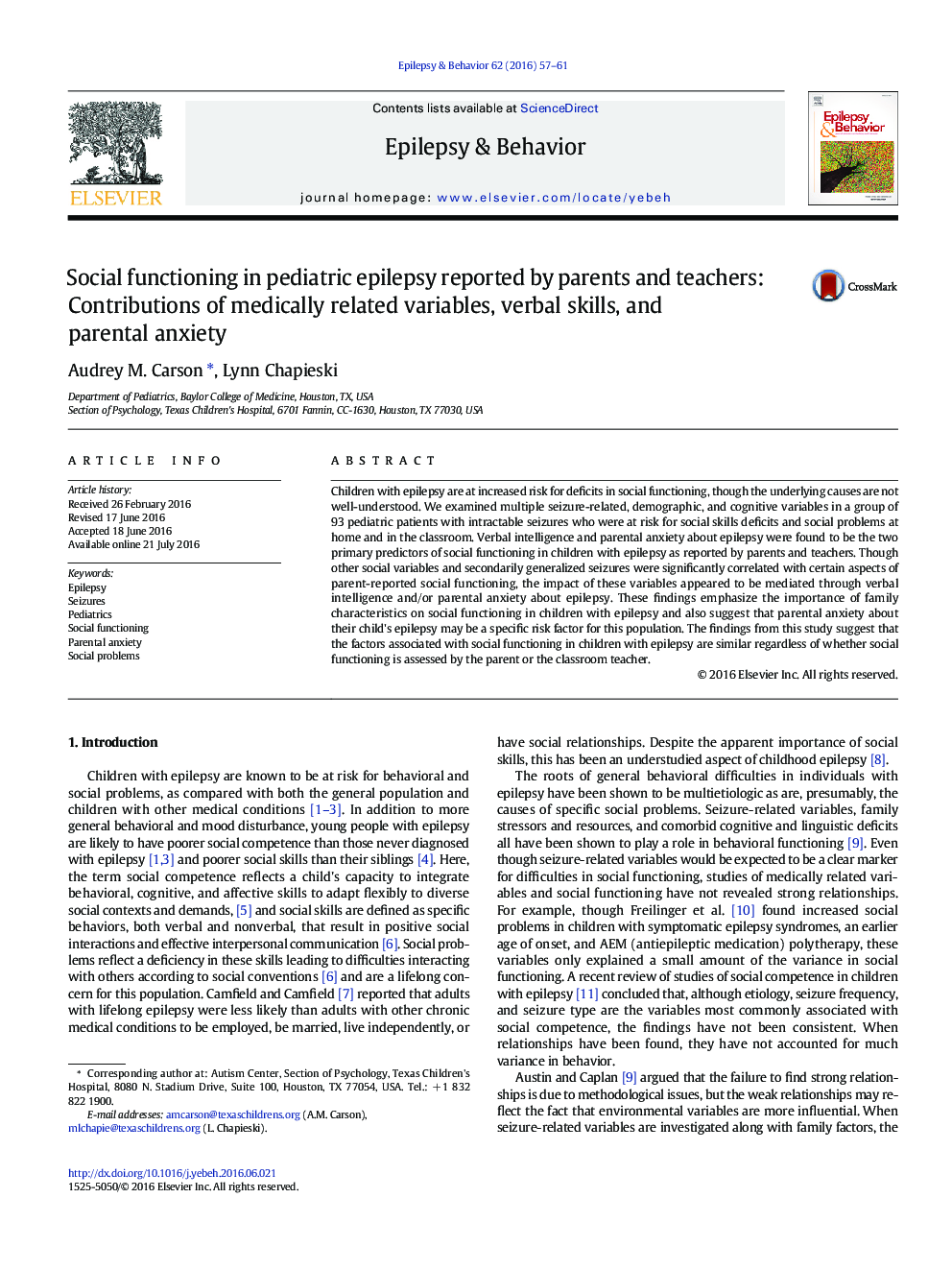| Article ID | Journal | Published Year | Pages | File Type |
|---|---|---|---|---|
| 6009754 | Epilepsy & Behavior | 2016 | 5 Pages |
â¢Children with epilepsy are at risk for deficits in social functioning.â¢Verbal intelligence and parental anxiety emerged as contributing variables.â¢Medical variables did not directly impact social functioning.â¢Similar risk factors were revealed by both parent and teacher reports.â¢Interventions for social problems should target parental anxiety about epilepsy.
Children with epilepsy are at increased risk for deficits in social functioning, though the underlying causes are not well-understood. We examined multiple seizure-related, demographic, and cognitive variables in a group of 93 pediatric patients with intractable seizures who were at risk for social skills deficits and social problems at home and in the classroom. Verbal intelligence and parental anxiety about epilepsy were found to be the two primary predictors of social functioning in children with epilepsy as reported by parents and teachers. Though other social variables and secondarily generalized seizures were significantly correlated with certain aspects of parent-reported social functioning, the impact of these variables appeared to be mediated through verbal intelligence and/or parental anxiety about epilepsy. These findings emphasize the importance of family characteristics on social functioning in children with epilepsy and also suggest that parental anxiety about their child's epilepsy may be a specific risk factor for this population. The findings from this study suggest that the factors associated with social functioning in children with epilepsy are similar regardless of whether social functioning is assessed by the parent or the classroom teacher.
